For many experts, the earthquake tragedy offers an opportunity to rethink the way foreign aid has worked for decades in Haiti -- excerpts from FRONTLINE's interviews
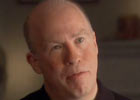 |
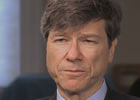 |
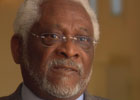 |
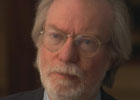 |
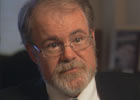 |
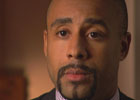 |
Mark Danner Author, Beyond the Mountains
... The last three or four decades, the world of foreign aid in Haiti has grown at an exponential rate. ... Its growth has in effect meant that the responsibility of the government to perform the basic functions of government -- to keep its people healthy, to educate them, to build roads -- has been taken over by the aid community, which makes it increasingly easier for the money that goes to the government to be stolen. ...
Jean-Claude Duvalier, of course, would simply write checks to himself for various things and extract money directly. But there are other, more creative techniques that the aid community, in one way or another, has sometimes taken part in.
One great example ... is the imports of grain. The United States began sending into Haiti in large amounts, under Jean-Claude Duvalier, excess wheat. ...
That wheat ... was milled in the government flour mill, and the regime in place seized from every bag of flour produced X number of dollars. The U.S. got credit for giving Haiti millions of dollars. It was simply getting rid of its excess wheat. The elite took from every bag dollars and dollars and dollars. ...
The tertiary effect was, of course, that import of flour destroyed the native Haitian rice crop. Rice crop farmers were ruined by the competition from this cheap flour. So these three different effects [were] all harmful to the country, and all of it was under the heading of foreign aid. ...
The question is whether now ... a creative attitude will be taken to actually rebuild not only Haiti but the foreign aid structure itself, and to focus not on simply giving but on building sustainably, instilling in the country skills, jobs; investment that can be commanded, run by Haitians themselves. And this has not been traditionally the philosophy of the foreign aid community.
And there's a sense in which the great familiarity of the international aid community with Haiti ... as the great problem child of international development could be debilitating when it comes to mustering that kind of creativity. We need new ideas. The past can't be allowed to dominate the decisions made now, because the decisions made now really could change the country, and the question is whether they will.
You won't, in the near term, reform the Haitian elite. They have been doing what they're doing, which is essentially stealing money in one way or another and benefiting from the corrupt state, for two centuries. What you can do is try to decentralize power and decentralize money. That is, in the next few years, as hundreds of millions of dollars flow into the country, you can make sure a substantial amount of that goes to Haitian workers; goes to as broad a number as possible of Haitian contractors; goes toward creating new businesses that will build houses, not just the old ones; goes toward, essentially, as many people as possible who are competent to do the work. ...
And that demands a creativity of approach that the international aid community has not thus far demonstrated. And we hope it will.
Jeffrey Sachs Author, The End of Poverty

[It] seems that you've got a moment here where you've got an opportunity to make things happen because the spotlight is on Haiti. The question is, how do you keep that spotlight on it, and realistically, do you really believe that it will remain in the expressed interests of the United States, the U.N., international community, to focus on Haiti?
... I have a very specific thought about that. The United States, which is going to appropriate funds for rebuilding, should put them actually outside of the U.S. government into a professional institution whose full-time job it is to do the kind of reconstruction and development work that Haiti needs.
And there is one: It's the Inter-American Development Bank [IDB]. It is the financial arm for large-scale investment throughout Latin America. It happens to be based in Washington. It happens to be extremely well run, and it happens to be the one institution that has a track record in Haiti in recent years of actually building roads and actually getting construction projects done.
Now, my recommendation is -- though the urge in the United States right now is to say: "We're your best friend, Haiti. We want to show how much we care, so we want to do it" -- that the United States actually resists that natural urge and political will right now. ...
We have so many things on our mind we can barely manage right now, so rather than making this a strong hug with [Haiti], we'll assign our financing to a professional organization outside of our day-to-day politics, so when our interests inevitably shift someplace else, it doesn't stop the process. The process goes on in a highly professional and accountable manner.
What strings are attached to that aid going through this fund?
If one creates what is called a multi-donor trust fund, the idea is that the United States would put money into the pot. We'd say to the European Union, "Come on, you do the same." No doubt many Latin American countries would join the effort as well, Mexico, Brazil and others. This would be great. It would leverage our finances as well as leveraging our interests. So this is a first benefit for the United States.
The normal kind of operation would be to say that a fund like that at a bank like the Inter-American Development Bank would have a professional management team, but it would have a board that would be governed by donor countries like the United States and have the participation of the government of Haiti as well.
So there would be a steering committee that would, on a regular basis, perhaps monthly at the beginning, then quarterly, then perhaps half year, review the professional plans, not made by politicians but made by engineers, about the roads, the power plant, the water supply, the waste-treatment facilities, the agronomic strategy for building Haiti's agriculture.
You'd really carve out a strong, professional center of gravity but then govern it through a political process that would make sure that money is being tracked, that the investments are actually taking place, that audits are being done, that the money is being responsibility managed.
People are going to say you're emasculating Haiti, that Haiti's role in this is diminished to too great a degree, that there's not enough use of the Haitian talents and skills and enough trust for the Haitian government. How do you get the balance right?
Well, I've only explained half the picture, because what I've described so far is what the international community would do. ... The point is that there is a counterpart, and that's the government of Haiti.
Can the government there be trusted?
The government of Haiti can be a counterpart. They can't be trusted in the sense of saying, "Here's half a billion dollars; use it well," but they can be trusted absolutely as the counterpart to say: "Let's roll up our sleeves and let's look at that map again, and let's think about the priorities for the road network. Let's think about the alternatives for the power sector."
Of course they have to be trusted like that. That is the core function of sovereignty. That is ultimately the responsibility of the Haitian people. And when it comes to actually allocating the funding for specific projects, no doubt there will be Haitian companies working alongside international companies as well. ...
Haiti's got to lead this in the end.
Raymond Joseph Haitian Ambassador to the U.S.
One of the problems in the past, as I understand it, is that it's not just slow-moving wheels of the international community. It's [that] the Haitian state is weak enough that asking for the money and having a place to direct the money is a problem. How do you deal with that now?
Well, the other thing, the real word they used is "absorption [capacity]." The absorption capacity of Haiti is quite low. The Inter-American Development Bank, IDB, has stated that 83 percent of Haitian professionals are abroad, mostly in America and in Canada.
I think if we really want to help develop Haiti, a program should be instituted to bring back quite a few of our professionals. And then people won't be talking about the low absorption level of the Haitian government. ...
Explain to me the problem presented by the dominance of NGOs.
Because of the problem of corruption in government, lack of transparence in the past, the international community have decided to work with non-government[al] organizations. And Haiti had become a haven for NGOs. In fact, they call Haiti the republic of NGOs. [There are] about 10,000 of them. We don't know what they're doing.
And now, what they used to accuse government of, it's been turned against NGOs that are not regulated, and we don't know what they're doing with the money.
NGOs cannot build the roads, the electricity, the water system and so forth. So I've been pleading with international organizations with some success ... to work with the Haitian government so that they cannot continue to say the government is too weak.
I think it should test us, because we put in place anti-corruption programs, and we're more transparent now. So while I'm not speaking against NGOs who do some good work in education, in health and so forth, I'm saying at the same time, we have to work with the Haitian government to strengthen it so that we don't keep repeating the same thing, you know, with [the] catch-22, we cannot work with them, they're not transparent, so we work with NGOs. NGOs cannot do all the work. And so you keep going and going and going. We have to trust the government and test them and go forward.
Paul Collier Author, The Bottom Billion

... Many NGOs are now piling in. There's a huge amount of money going in. ... The danger is that a weakened capacity of government with the prospect of huge inflows of dollars worsens corruption within the society. And the donor rivalries are just accentuated.
Are there steps to be taken on that front?
I think what is needed is a strong coordinating authority, which has to be Haitian, plus a key international actor.
A partnership?
... "Partnership" is a very cozy, comfortable word. But too often, the reality is that the individual agencies just do whatever they want. They don't even inform each other, let alone the government. And the government doesn't have the capacity to change the situation.
There has to be some centralized authority that is Haitian plus international that can affect change both within Haiti and internationally, because it's not just the international actors that have to be told what to do. There has to be change within Haiti. For example, homes have to get built; electricity has to work.
Electricity has never worked in Haiti. And it's not hard to run an electricity plant and to distribute the power, but it hasn't happened because of the system misgovernance. The ports have to work in order for Haiti to be able to export manufacturers and agricultural produce. The ports haven't worked to date, and that's a problem of misgovernance.
So there needs to be sufficient authority with a view to a strategy for change that can actually implement change on the ground within Haiti and has the authority to force change among the international actors so the international actors don't just profess a spirit of partnership; they're actually told what to do.
And the [René] Préval government is going to step into that role?
I think so. I think so. But I stress that it's got to be a dual authority. The government itself, even before the disaster of the earthquake, did not have the capacity to enforce its authority on the international actors. The international actors are now hugely expanded.
The capacity of the government is now hugely contracted, and so the authority of the government has to be reinforced by a very senior international actor. I see figures such as former President Clinton as having both the trust within Haiti and the international prestige that, together with an appropriately senior Haitian figure such as the prime minister or whatever, that the two of them can impose order on the international zoo.
But you don't want an American viceroy?
No. No. No, there's no appetite for colonialism. I mean, that's not the issue. The issue is getting enough authority, enough profile in authority, that we can impose order on chaos, both within Haiti and among the zoo of international actors. Of course, that will meet opposition, because from both quarters, that within Haiti the misgovernance is not there by chance. It's there for profit. Externally, business as usual is not there by chance. It suits the agencies to do their own thing. ...
If you put in money on the basis of hope and not enough reassurance that the structures are sound, you provide the temptations which contaminate the political process. You empower the crooks.
We've been empowering the crooks?
You've been empowering the crooks. And it doesn't have to be like that. Haitian politics was already on the mend after years of dysfunction. And if proper structures of authority are set up with good scrutiny of how money is spent, then big money can be channeled around a strategy for opening these very obvious opportunities. This is not that speculative. Labor-intensive manufacture, opportunities in commercial agriculture and tourism, these are pretty safe bets.
William Easterly Author, The White Man's Burden

A lot of people talk about the optimism that existed just prior to the earthquake, that throughout 2009 you started to see investors come into Haiti and that Haiti was on a good path and that those who are advocating more now, post-earthquake, are simply saying that they're picking up where Haiti was left off before the earthquake, that there was a good trend going there.
That would be great if what they're talking about is Haitians and foreign investors making choices with their own money at stake, solving their own problems, which I think was explaining a lot of the good part of what was going on in Haiti before the earthquake.
What's not good is if the earthquake becomes an opportunity to completely abandon that model of Haitians solving their own problems and putting their own money at stake to solve Haiti's problems, and foreign investors putting their own money at stake to invest in things in Haiti that have high returns. That system does have accountability when you spend your own money and you're careful how to spend.
What the Bill Clintons and the Paul Colliers and Jeffrey Sachses are talking about is spending other people's money on Haitians without any feedback from the Haitians and whether it reaches them. That's a system with zero accountability.
Well, they claim that it does have accountability.
There's no credible mechanism that they can cite that creates any accountability whatsoever. There's no independent evaluation in place. There's no political incentive to change behavior when the evaluations are negative.
We've seen that from multiple examples in many countries involving the U.N. The U.N. has had this grandiose program for Millennium Development Goals that were supposed to be completed. One of the deadlines [that] already passed in 2005 [was] to have equal enrollment for boys and girls in schools. That goal was not met. In this year, 2010, there was another goal to have everyone who needs AIDS treatment to get AIDS treatment. That goal is not even close to being met. That's light years away from that goal.
They failed to meet that goal, and nobody's holding them responsible.
So that's the system that Jeffrey Sachs and Paul Collier are relying on to fix Haiti -- a system with no accountability whatsoever. I cannot believe that that is taken seriously.
But what people will say, listening to you, is, "But, my God, this is your neighbor who's just had his house collapse on him."
Oh, I have nothing against earthquake relief. I have nothing against rebuilding the house that has collapsed. I think we need to separate the question of relief and reconstruction, which I think aid can do and should do. And there are critical needs that need to be met right away in that area, and we should meet them, but not use this as this so-called opportunity to have a long-run role for foreigners to run Haiti. ...
But things have worked in the past. The Marshall Plan is the prime example that people give for massive infusions of outside aid.
The Marshall Plan is the example that people always give because it's virtually the only large-scale success in foreign aid. ... The Marshall Plan was not really about aid and development. It was really just about reconstruction of an already very developed continent, Western Europe, that had just had its factories destroyed by the war.
There was already business expertise and good legal institutions and all the things that you need for a prosperous economy, and all you need to do is rebuild the factories and the roads.
That's completely different from the case of Haiti, which has never had a prosperous economy, never been anything other than poor or destitute, politically unstable, ruled by dictators.
David Walton, M.D. Partners in Health

On the optimistic side, we have an opportunity to do what we haven't necessarily done in the past, which is really stand in solidarity with the Haitian people, to build Haiti back better, to create a sustainable Haiti that can stand on its own two feet. ...
We have a responsibility as a donor nation to what we like to call in Partners in Health a responsibility to accompaniment.
Accompaniment is different than, say, dropping money in somebody's lap and saying: "Now you go rebuild your country. Good luck with that." It's not also dropping money in somebody's lap and saying, "Well, here's what you're going to do with that money, and here's how you're going to do it. And if you don't do it well, I'm going to pull all that money out."
What it is -- for example, in the reconstruction effort -- is making money available, and then the metaphor that I use is walking hand in hand with someone throughout their difficult times, so that when things are better, they can now walk on their own. I will continually fall back on medical metaphors. In the case of a patient with malaria, that means making sure that they take their medication. That means making sure that their kids are in school and that they have enough to eat and that they have clean water. ... It's taking the broader perspective.
And so accompaniment to me also means again standing in solidarity with the Haitian people. One of the things that I think is critically important to understand in the broader context of construction is that Haiti can't do it alone, but Haiti shouldn't be put into a receivership, as some people have said or mentioned recently.
I had read recently some of these American companies are fighting for some of the contracts for reconstruction. Is that a bad thing? Not necessarily, if you can create thousands upon thousands of jobs for Haitians. And that's what Haiti needs. Haiti needed that prior to Jan. 12. ...
On a good day, unemployment in Port-au-Prince is upwards of 50 percent. In rural Haiti, it exceeds 90 percent. How are we going to help Haiti get back on its feet? Again, with an accompaniment model, I think that means working with the government, not circumventing the government, to build Haiti back better with industry, with jobs, with nutrition, with agriculture, with fertilizer.
I mean, it's such a broad recipe for success, but it's certainly not insurmountable.